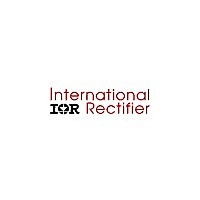IR3094MPBF International Rectifier, IR3094MPBF Datasheet - Page 19

IR3094MPBF
Manufacturer Part Number
IR3094MPBF
Description
IC 3 PHASE PWM CONTROL 48MLPQ
Manufacturer
International Rectifier
Datasheet
1.IR3094MTRPBF.pdf
(29 pages)
Specifications of IR3094MPBF
Pwm Type
Voltage Mode
Number Of Outputs
3
Frequency - Max
540kHz
Duty Cycle
100%
Voltage - Supply
8 V ~ 16 V
Buck
Yes
Boost
No
Flyback
No
Inverting
No
Doubler
No
Divider
No
Cuk
No
Isolated
No
Operating Temperature
0°C ~ 150°C
Package / Case
48-MLPQ
Frequency-max
540kHz
Lead Free Status / RoHS Status
Lead free / RoHS Compliant
Available stocks
Company
Part Number
Manufacturer
Quantity
Price
Company:
Part Number:
IR3094MPBF
Manufacturer:
IOR
Quantity:
331
IR3094PBF
The advantage of sensing the inductor current versus high side or low side sensing is that actual output current
being delivered to the load is obtained rather than peak or sampled information about the switch currents. The
output voltage can be positioned to meet a load line based on real time information. Except for a sense resistor in
series with the inductor, this is the only sense method that can support a single cycle transient response. Other
methods provide no information during either load increase (low side sensing) or load decrease (high side sensing).
An additional problem associated with peak or valley current mode control for voltage positioning is that they suffer
from peak-to-average errors. These errors will show in many ways but one example is the effect of frequency
variation. If the frequency of a particular unit is 10% low, the peak to peak inductor current will be 10% larger and
the output impedance of the converter will drop by about 10%. Variations in inductance, current sense amplifier
bandwidth, PWM prop delay, any added slope compensation, input voltage, and output voltage are all additional
sources of peak-to-average errors.
Measure the inductance L and the inductor DC resistance R
. Pre-select the capacitor C
and calculate R
as
L
CS
CS
follows.
L
R
R
L
(14)
CS
C
CS
Inductor DCR Temperature Correction
If the Current Sense Amplifier temperature dependent gain is not adequate to compensate the inductor DCR TC, a
negative temperature coefficient (NTC) thermistor can be added. The thermistor should be placed close to the
inductor and connected in parallel with the feedback resistor, as shown in Figure 8. The resistor in series with the
thermistor is used to reduce the nonlinearity of the thermistor.
Figure 8 - Temperature compensation of inductor DCR
Remote Voltage Sensing
To compensate for impedance in the ground plane, the VOSNS- pin is used for remote sensing and connects
directly to the load. The VREF voltage is referenced to VOSNS- to avoid additional error terms or delay related to a
separate differential amplifier. The capacitor connecting the VREF and VOSNS- pins ensure that high speed
transients are fed directly into the Error Amplifier without delay.
Page 19 of 29
09/26/05












